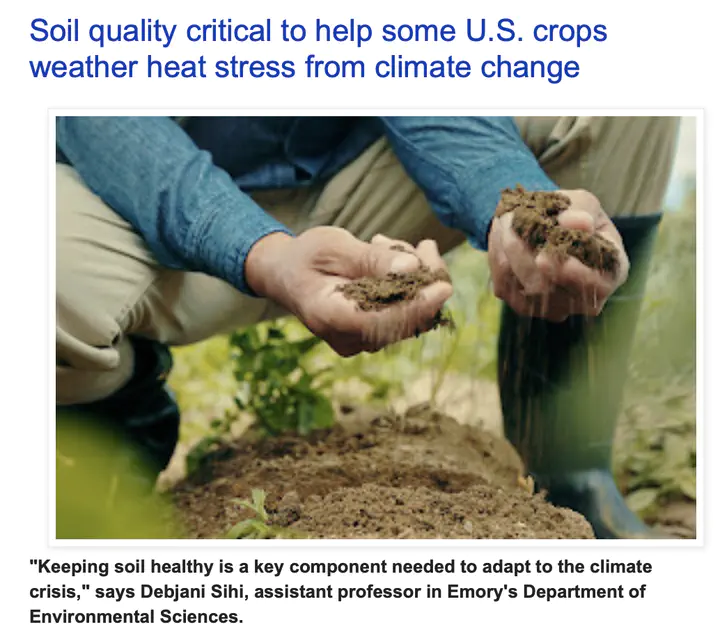Soil quality critical to help some U.S. crops weather heat stress from climate change

The capacity of soil to hold water will be critical to determine how well farms in some regions of the United States manage the problem of prolonged heat stress due to climate change, a new study suggests. The journal Frontiers in Sustainable Food Systems published the finding, based on analyses of 30 years of data on four major U.S. crops — corn, soybeans, cotton and wheat.
“At the same time that farmers are facing more extreme weather events caused by climate change they are dealing with the growing problem of soil degradation,” says Debjani Sihi, first author of the study and assistant professor in Emory University’s Department of Environmental Sciences.
Sihi is a biogeochemist who studies environmental and sustainability issues at the nexus of soil, climate, health and policy.
Globally, according to Sihi and her co-authors, 750 million people were undernourished in 2019 due to the effects of climate change, including a decline in food production, hikes in food prices and increased competition for land and water. And the problem of global food security is expected to intensify. World crop yields are projected to decrease by 25% overall within the next 25 years due to climate change, and yet global food production would need to double by 2050 to feed the projected growth in human population. (https://esciencecommons.blogspot.com/2022/07/soil-quality-critical-to-help-some-us.html)